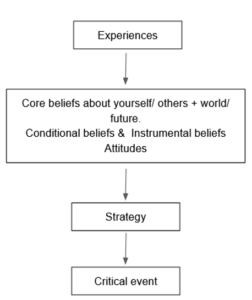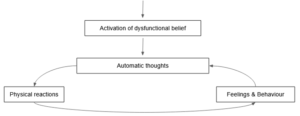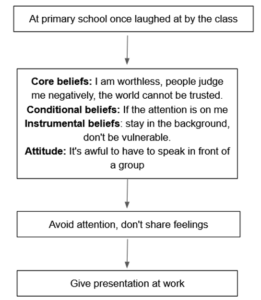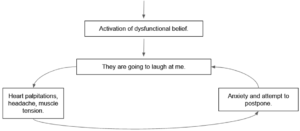Beck's Cognitive Model is a model that assumes that psychological complaints arise from the way in which information is selected, interpreted and processed. This process starts early in childhood and is influenced by many factors.
The model describes the following elements:
- Experiences: Relevant learning moments from the past.
- Beliefs:
- Core beliefs are beliefs about how you view yourself or others and your perspective on the world or future.
- Conditional beliefs are beliefs with an "if..., then…" nature. If A happens, that's the condition for event B.
- Instrumental beliefs can be seen as ‘rules of life’. It is an important value to someone.
- Attitudes: The least profound reaction, such as assessing a particular situation to be undesirable.
- Strategies: A response to the beliefs, the techniques a person develops to survive in life. These can also reinforce our beliefs.
- Critical event(s): A situation that is perceived as problematic.
- Activation of dysfunctional beliefs: During a critical event, a certain cognitive schema or belief is triggered. If it is dysfunctional, it triggers a negative vicious cycle of automatic thoughts, feelings and behaviour and physical reactions.
Beck’s Cognitive Model


Example of a completed model


Sources:
Ten Broeke, van der Heiden, Meijer & Hamelink, Cognitieve Therapie de basisvaardigheden, 2008.
Beck, A.T. (1987). Cognitive models of depression. Journal of Cognitive Psychotherapy: An International Quarterly, 1, 5-37.

 Print
Print 
